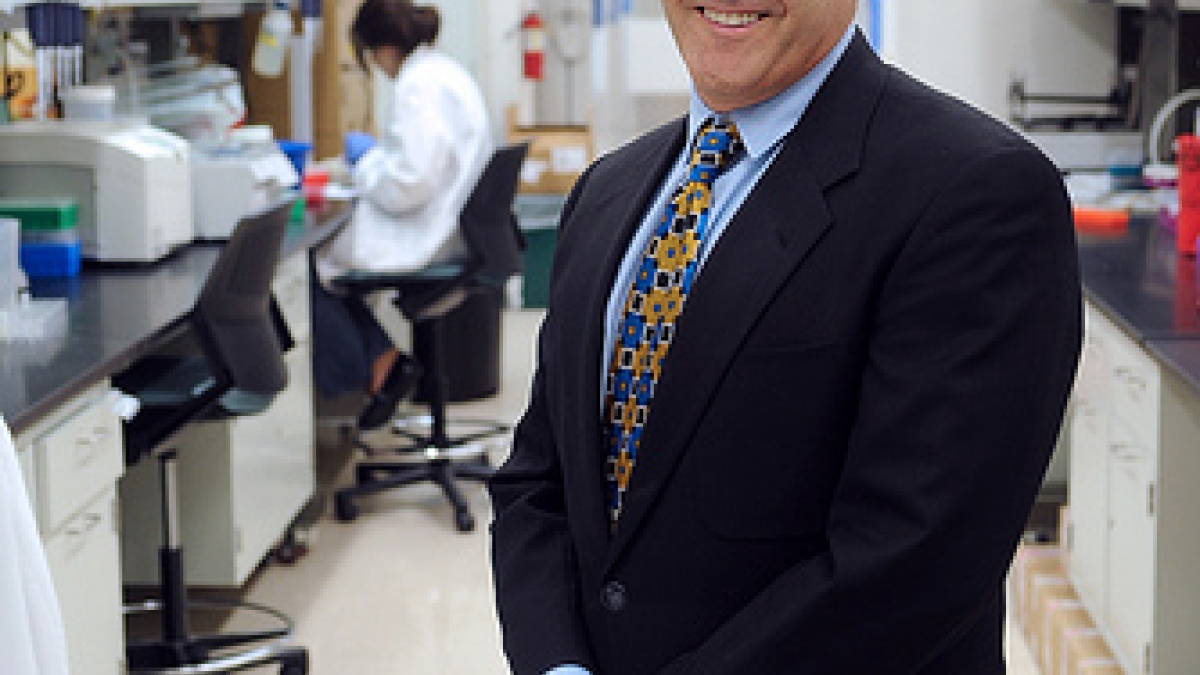LaBaer named Health Care Heroes award finalist

Joshua LaBaer, M.D., Ph.D., of the Biodesign Institute at Arizona State University, has been selected as one of three finalists for the Phoenix Business Journal’s Health Care Hero award in the researcher/innovator category. The annual award honors exemplary performance in the Phoenix health care industry. Award recipients will be announced at a breakfast at the Arizona Biltmore Resort on Aug. 18.
Two years ago, LaBaer, a medical oncologist and research scientist, was recruited from Harvard University to serve as the first Piper Chair in Personalized Medicine at ASU’s Biodesign Institute. LaBaer leads a multidisciplinary team in a large-scale effort to discover and validate unique molecular fingerprints of disease. These fingerprints, called biomarkers, can provide an early warning for those at risk of major illnesses. LaBaer is co-inventor of a technology that serves as the molecular toolkit for his approach.
LaBaer’s recruit to ASU was a boon to the medical and research community, as he is one of the foremost investigators advancing personalized medicine. He is working in a new field of science called proteomics to make major strides in cancer research, as well as diabetes and infectious diseases.
Recently, LaBaer identified a panel of 28 new biomarkers that may aid in the early diagnosis of breast cancer. These biomarkers are important in breast cancer tumor biology and pathology, as well as drug resistance to leading treatments.
“We believe that these biomarkers will lead to the first type of blood tests for the early detection of breast cancer,” said LaBaer. “We hope this will lead to catching breast cancer earlier and saving thousands of lives each year.”
In addition to early detection, breast cancer care at present falters when patients become resistant to the drugs used to treat the disease. LaBaer’s group recently uncovered 30 novel genes involved in tamoxifen drug resistance. They did this by screening genes implicated in the development of breast cancer cells that become resistant to the drug with a robotic system that places human genes into cancer cells to determine if the genes would change the behavior of those cells.
LaBaer’s center is home to a unique, worldwide resource for research called DNASU, a gene library of more than 127,000 unique genes made in his lab and contributed from labs elsewhere. These DNA samples represent more than 750 organisms and provide the raw materials for experiments. His lab has made this library into a shared resource to accelerate research. Housed in a million-dollar custom robotic freezer, the gene library is the only one of its kind in the southwestern United State. To date, they have distributed 250,000 plasmid clones to 550 labs in 35 countries.
In addition to his innovations, LaBaer’s community impact has been significant. His center has support from the Breast Cancer Research Foundations, the National Cancer Institute, the National Institute for General Medical Sciences, the National Institute for Allergy and Infectious Diseases, and a $35 million philanthropic gift from the Piper Charitable Trust. LaBaer’s center has resulted in jobs, opportunities for students, incoming grant dollars, plus the attention that his cutting-edge research brings.
LaBaer earned a BS from UC-Berkeley, and his MD and PhD degrees at UCSF. He is a board certified physician in Internal Medicine and Medical Oncology and has published 60 publications.
LaBaer is the founder of the International Human Proteome Organization and US HUPO. He serves on the NCI Board of Scientific Advisors and co‐chair for the Steering Committee for NCI’s Early Detection Research Network. He also serves as an associate editor for the Journal of Proteome Research.